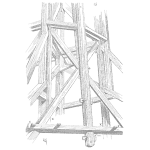
As the quality manger for a tier two automotive supplier, I recently had the opportunity to hire a quality supervisor following the retirement of a long-time member of our team. Our company’s human resource manager and I worked together through the entire selection process. Given the status of our region’s economy and the recent closure of several large factories, I wasn’t surprised when our mailbox started filling up with resumes in response to ads on the popular Internet job sites. The typical respondent was a mid-career professional with over 15 years of experience in manufacturing that had either been recently laid-off due or who wanted to move up in their career.
From this pool of experienced candidates however, I had difficulty finding a qualified candidate; someone whose skills would readily transfer to a new industry and organization. The unsuccessful candidates understood the scope of their last position very well, but demonstrated little evidence of their preparedness to step into a new one. After reviewing of dozens of resumes and interviewing every viable candidate during a two-month search, we finally found and hired the right person for the job. Since then, I’ve reflected on the characteristics that separated the ideal candidate from all the rest, and identified a few strategies for today’s quality professional to prepare for tomorrow’s uncertain job market.
Dig Deeper
The job of a quality professional is a technical one. Auditing, inspection, calibration and testing each involve foundational technical skills. By continually investing energy into sharpening your technical aptitude, you keep yourself in a ready state for new challenges. Enhancing your technical skills can be as simple as reading trade journals, assisting on a project outside your skill set, or obtaining an industry certification.
Reach Higher
According to Donald Asher in his book Who Gets Promoted, Who Doesn’t and Why, “Employers are not rewarding their strong performers for their past contributions; they are investing in their future contributions.” Managers are looking for employees who not only have the capability to perform the task at hand, but also the potential to fill a future role. By developing the skills needed to solve problems at a higher level of responsibility, you automatically engage yourself in the promotion process. Your current position may not require a working knowledge of managerial accounting or lean manufacturing, but your understanding of these and other concepts may prepare you for your next one.
Support Skills
Regardless of your role, complimentary computer skills may give you a slight edge during your next job search or allow you to become more valuable to your current employer. A calibration technician who can whip up fixture designs in AutoCAD, a quality engineer who develops databases, or a seasoned auditor who can generate slide decks are helpful resources to many quality teams. Learning new computer skills is a simple as opening the help file of any software program, or by taking a low-cost course from a learning platform like Udemy.com or edX.org.
Broaden your horizons
Look around your factory, office or neighbor for opportunities to expand your experiences into both related and far-reaching disciplines. Learn about your customers, suppliers and competitors – their history, product lines and plans for growth. Study economic and technological trends. Develop hobbies and plan projects that provide the environment to learn new skills. Home repair projects, artistic endeavors, and volunteering in your community all generate ideas that often connect to form a wider view of the world around you.
Managers facing a hiring decision ask themselves the same basic question, “How well will this person fit into the organization?” A candidate’s demonstrated accomplishments, personality and skills all help answer this question. By stretching your realm of understanding deeper, higher and wider, you will not only find more “good fits” in the employment market, but also in the world right around you.
Leave a Reply